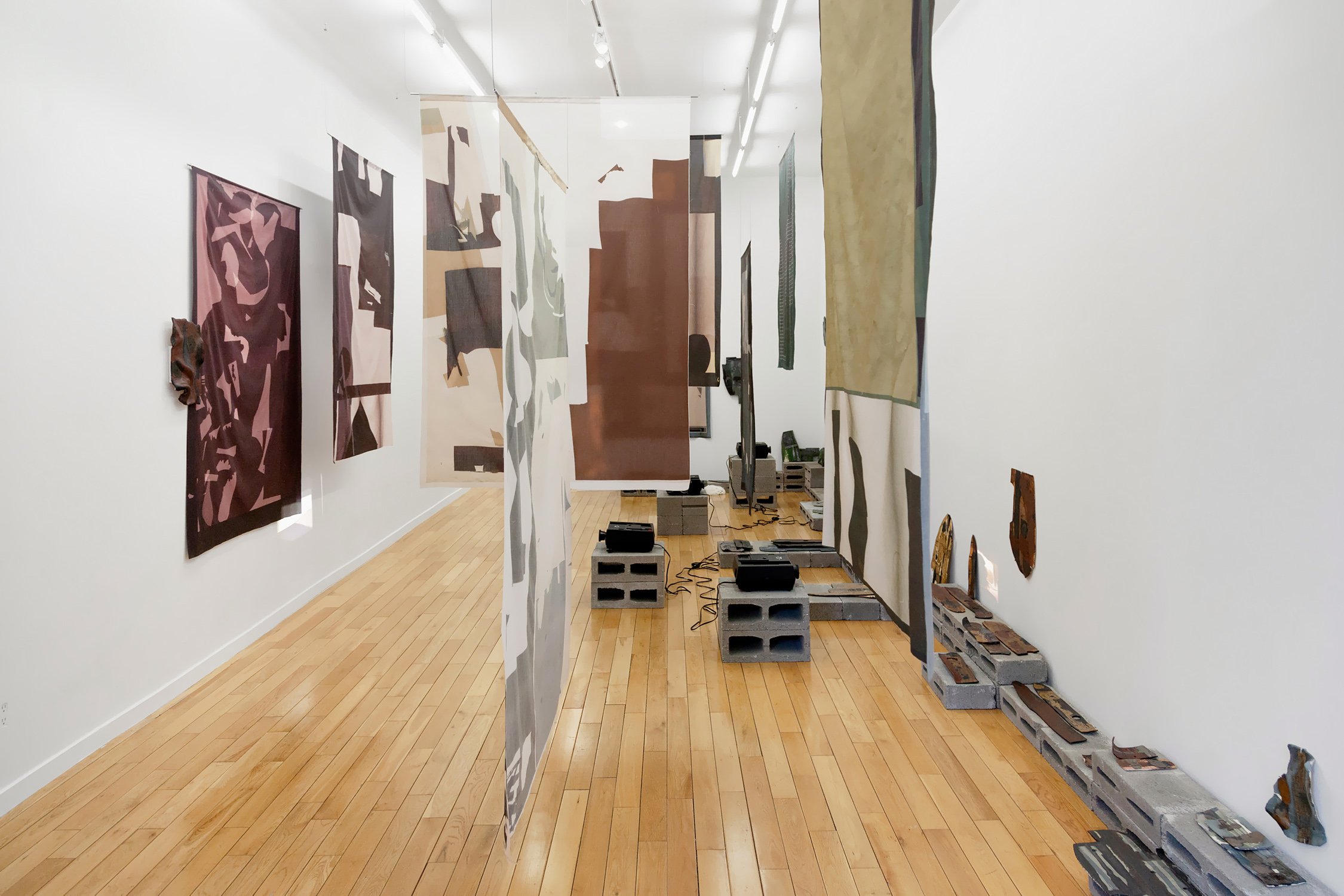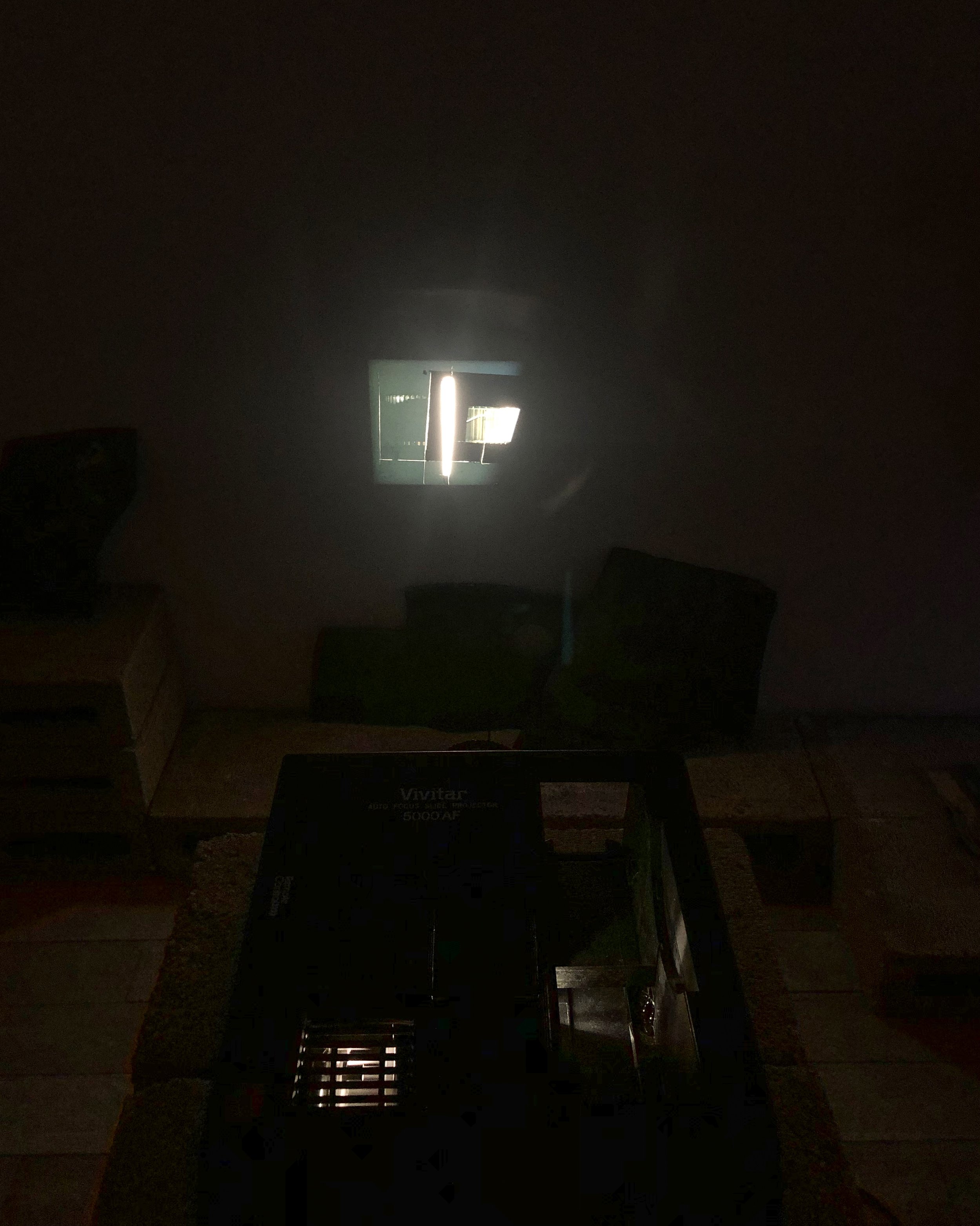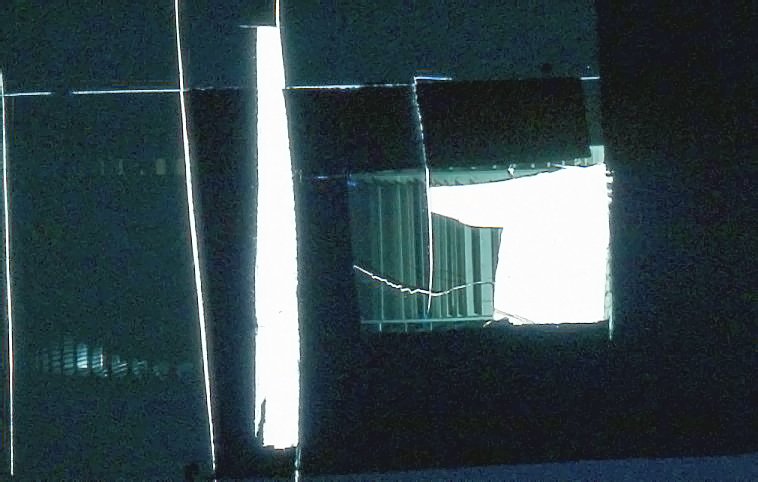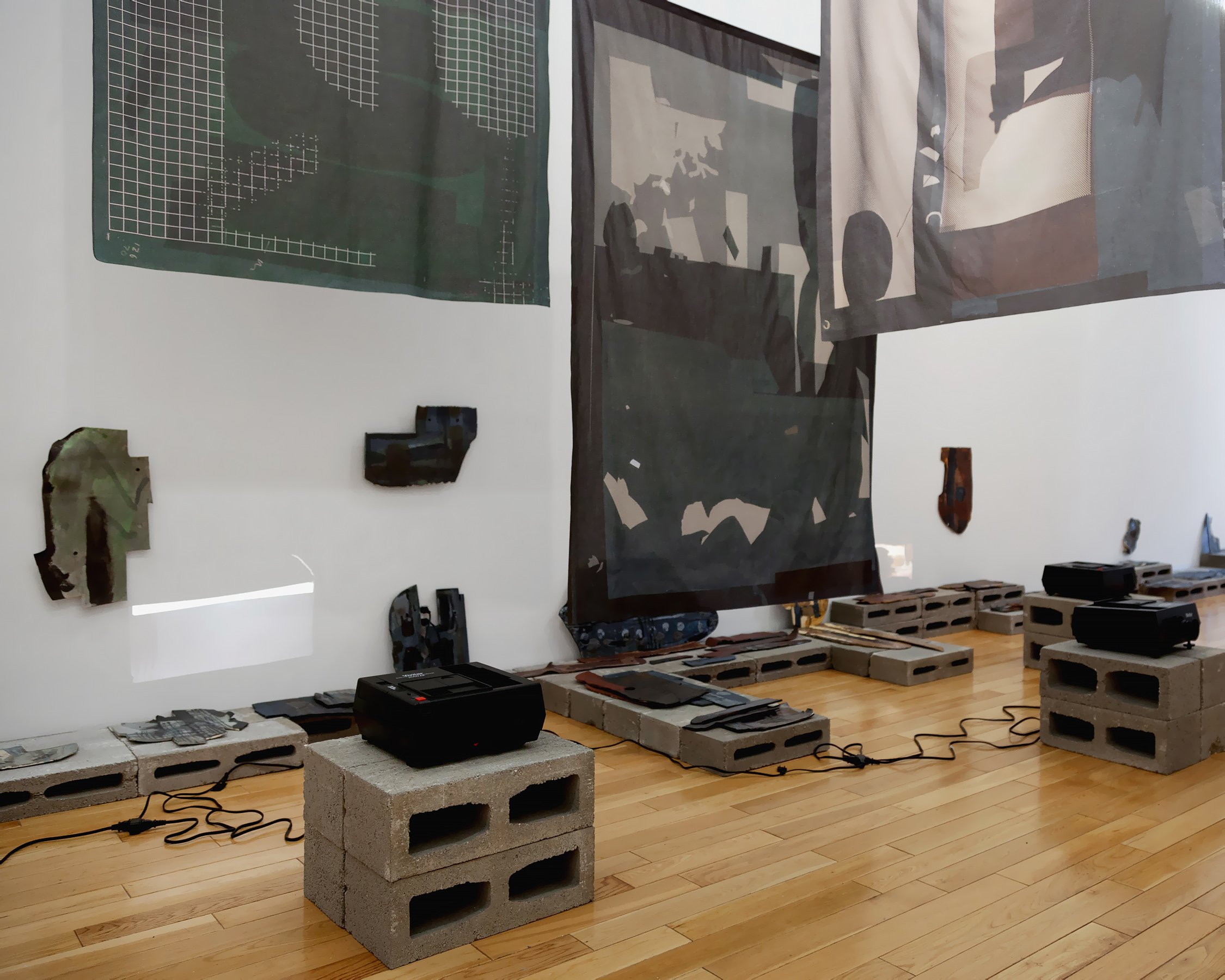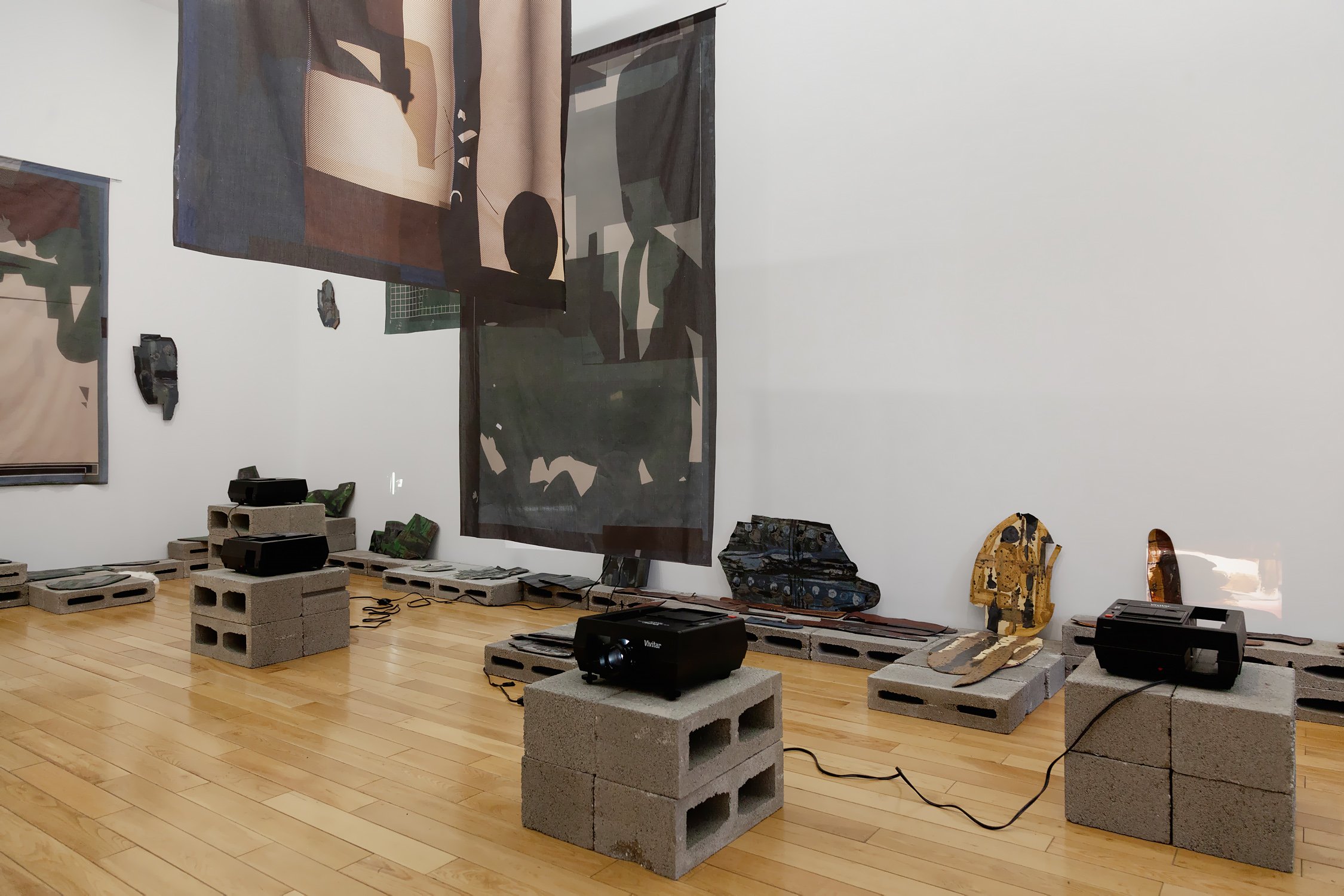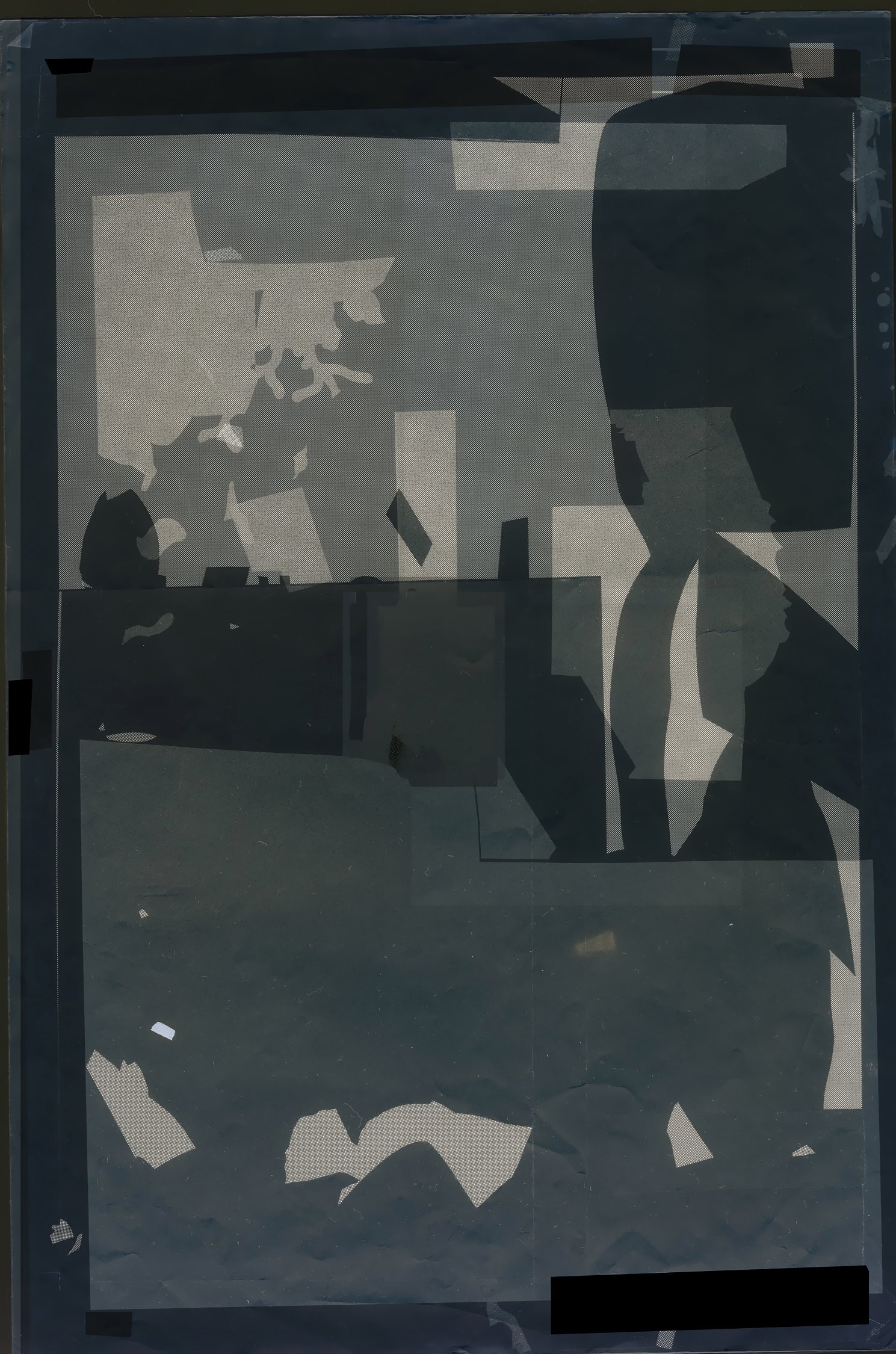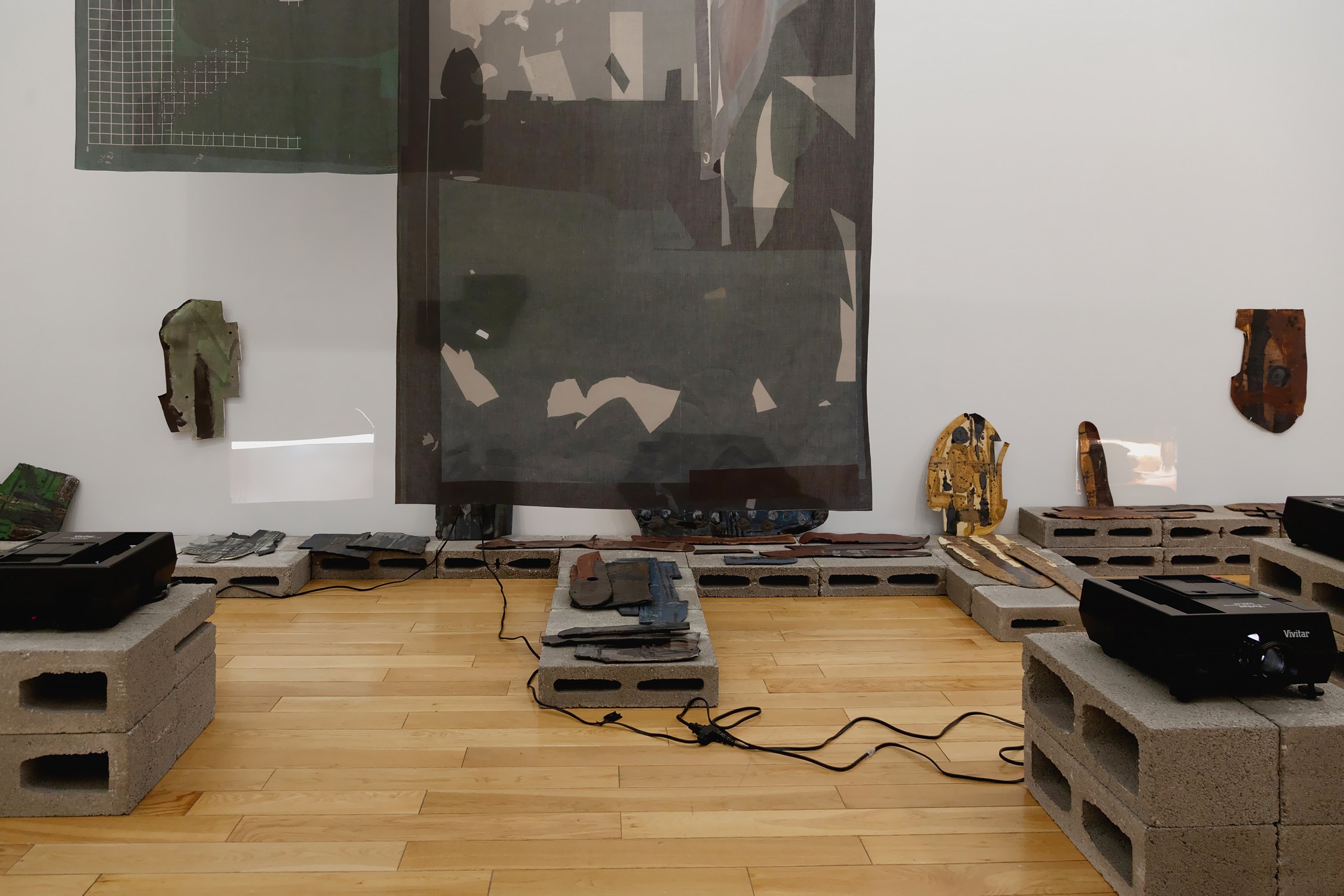Sarah Entwistle:
You allowed the object of your love to become abstracted.
And as one gets older the arteries harden.
I thought I should let you know.
March 31 – May 7, 2022
Opening Reception:
March 31, 2022
6:00 - 8:00pm
signs and symbols is pleased to present Sarah Entwistle’s exhibition titled You allowed the object of your love to become abstracted. And as one gets older the arteries harden. I thought I should let you know. For her second solo exhibition with the gallery, Entwistle presents an installation of ceramics, textiles, and 35mm slide projections. The assembled works hold formal, chromatic, and material lineage with the paper, card, celluloid, transfer sheets, etc. of the artist's continued site of inquiry — her late grandfather’s accumulated effects, largely dated to his final decade in New York.* The act of cutting, incision, and excision, with scalpel, with ripping, with tape, with pen, runs through this source material and is further taken up by the artist as a strategy for deconstructing and renewing the plastic material itself and therein the biographical and gendered structures embedded within it. This ongoing metabolizing of the inherited matter by Entwistle continues to inform the emergence and articulation of her own visual and biographical schema.
“In the act of digesting my grandfather’s vestiges, I started to sift out a base material layer, trying to identify a territory of biographical neutrality in which I could breathe. I began to strip the raw material away from its contextual pinnings, focusing on this tangible resource rather than the thinner narrative gestures inscribed on top. Alongside this came the extraction of a chromatic spectrum of corrosive pinks, greens, cyans, sepias, magentas, and browns.”
From this processing developed a series of coarsely hewn and scored ceramic slabs that were formed through archival envelopes rolled into the wet clay (and then discarded), their indentations and surface ridges impressed as contours into the ceramic reliefs. During firing, some large sheets cracked apart but remain included in the installation, a structural opportunity identified by the artist as present at large in the archive and its biography(ies); fragmented, disordered, inarticulate.
A series of projected archival color slides have also been materially modified through cutting away celluloid or masking with streaks of acrylic ink. Obscuring the figurative specifics of context and subject, the artist turns attention to the interstitial space of the image, to dwell in the abstracted planes of gradation, tone, and texture.
These modified 35mm slides are projected onto large-scale printed textiles that hold graphic color-scapes whose compositions arise from used, archival A3 Letraset transfer sheets (printed textures applied to architectural drawings). Their cut-up configurations, notations of a somatic process in motion, result in an accidental formal lyricism. These remnants are the parts that remain outside of, and peripheral to, the main story of the architectural propositions of the origin archive — cut into and cut away, unintentional. Yet here, the artist more clearly perceives the spatial, the volume of the body, the volume of the interior, as opposed to a complete rendition of the figure or the façade.
In talking of figuration, Entwistle writes, “The archive holds multiple women whose naked limbs are ever-present in photographs, seated and displayed, formal foils to enhance design prototypes. I hold these Muses in mind not as set or pictorial device but as felt presence through my own form and gesture pressed into the making. In handling the wet clay my fingers indent too. The hand expresses the force of the body, imprinted in the ceramic, in the gestural expression of the glaze, and the cutting marks on the slides. Embedded. And with that the figure arises in the work, it becomes, you leave the hand in the work. It doesn’t set apart from, the hand then comes to contain the full gesture of the body(ies), the fragment becomes the whole.”
*In 2011, the artist inherited the personal effects of her late grandfather and fellow architect, Clive Entwistle (1916, London – 1976, New York), whom she never met. Amassed in the collection, which had been retained in a Manhattan storage facility, are ambitious yet unrealized architectural proposals, furniture designs, personal photographs, and letters. The material reveals a totalizing vision channeled both through his design work as a proponent of European modernism and his charged relationship with women.
sarah entwistle (b. 1979) received her BSc from The Bartlett School of Architecture, London and her Dip. from the Architectural Association, London, where she subsequently taught a design unit. In 2011, she inherited the personal effects of her late grandfather and fellow architect, Clive Entwistle (1916 – 1976), whom she never met — this material re-emerged from a Manhattan storage room where it had been retained for over thirty years. Entwistle's subsequent solo show In short, in theory and with a bit of luck (2012) at the Architectural Association marked the beginning of her engagement with Clive’s archive. Working from within a biographical frame that orientates around the processing and ‘spoliation’ of this archive, Entwistle's process of re-working both material and thematic remnants from within the archive offers opportunities to address wider gendered dynamics at an intimate scale. The contents of the archive reveals a charged relationship between Clive’s female lovers, relatives and his professional practice as a proponent of architectural modernism. The impulse with this on-going processing of the material is compelled by the gradual re-centering and re-claiming of the female Muse.
Entwistle received the 2014 Le Corbusier Foundation Grant for Visual Artists and in 2015 presented a solo exhibition, He was my father and I an atom destined to grow into him, at the Le Corbusier Foundation in Paris. The exhibition coincided with the publication of her experimental biography, Please send this book to my mother, Sternberg Press, 2015. She was also the recipient of the Graham Foundation for the Advanced Studies in Fine Art, Chicago publication and production grant in 2014. In 2017, she received a grant from the Arts Council England, Artists' International Development Fund, with which she is developing an ambitious site-specific installation for the Zevaco House, Casablanca in collaboration with curator Salma Lahlou. In 2019, she was awarded the MOSTYN Open 21 Main Prize in Llandudno, Wales. In 2020, she was the subject of a solo exhibition, You should remember to do those things done before that have to be done again, at Museo Nivola in Sardinia. Her artist's monograph titled, Junk. Own, in partnership with Museo Nivola, Sardinia and Distanz Publishing, Berlin was published in March 2022.


